Broken Roads has the potential to become the next Disco Elysium
The post-apocalypse returns to Australia.
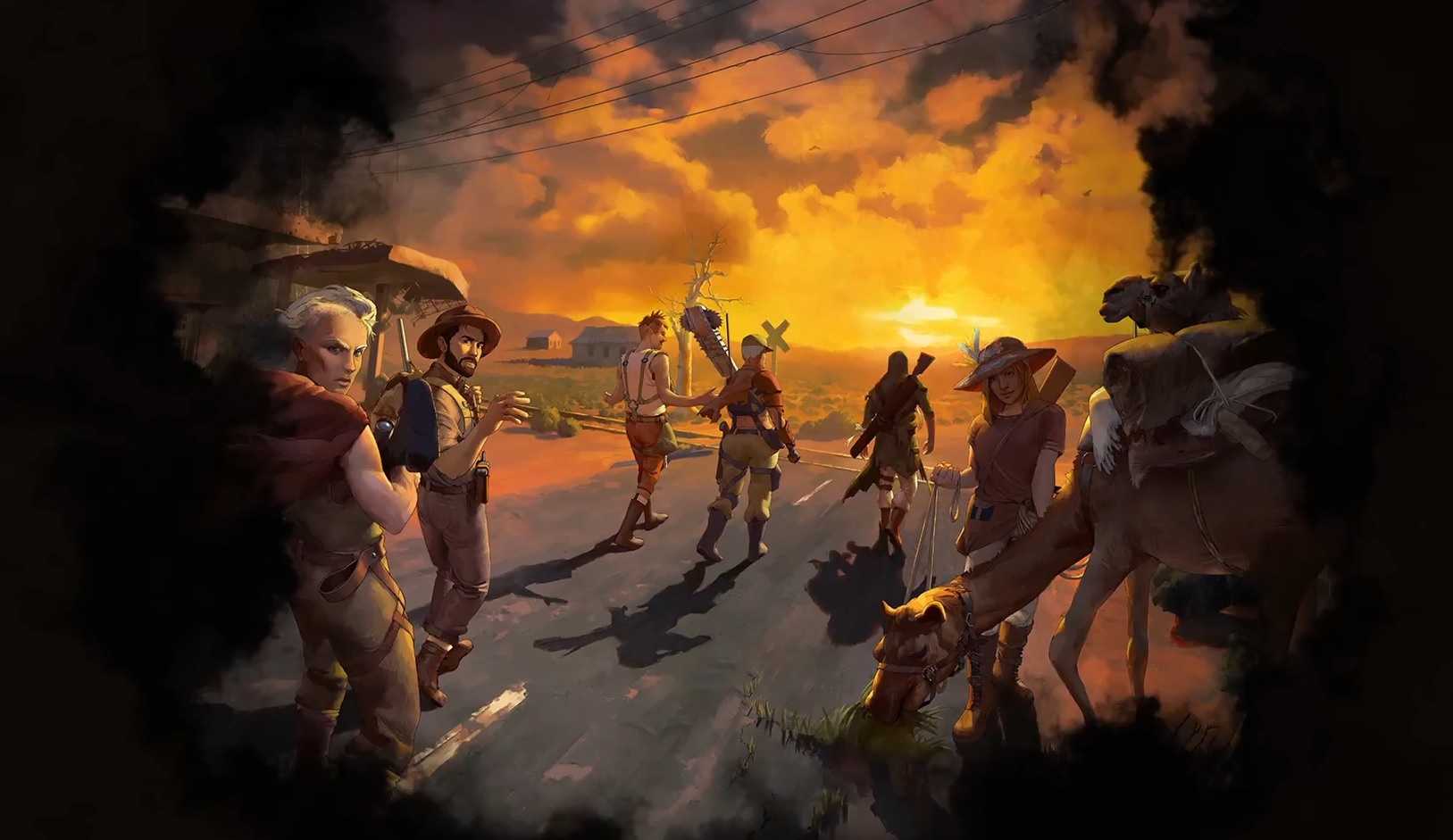
Broken Roads' creative lead, Colin McComb, has a long history with CRPGs. He previously worked on Fallout 2, Planescape: Torment and Wasteland 2. More recently he was creative lead on Planescape's spiritual successor, Torment: Tides of Numenera. McComb is now taking a chance on Drop Bear Bytes, a debut studio working on an ambitious new post-apocalyptic tale.
"Craig Ritchie called me up in 2020," says McComb. "He's the game director. He said, 'We'd like to get you on board with this game', and I was like, 'Sell me on it'. He said, 'Post-apocalyptic'. I was like, 'Done three of them'. He said, 'Philosophical'. I was like, 'OK, sounds good'. He said, 'Set in Australia'. I'm like, 'Intriguing'. And then he said, 'It gets weird'." Suitably convinced, McComb joined the team.
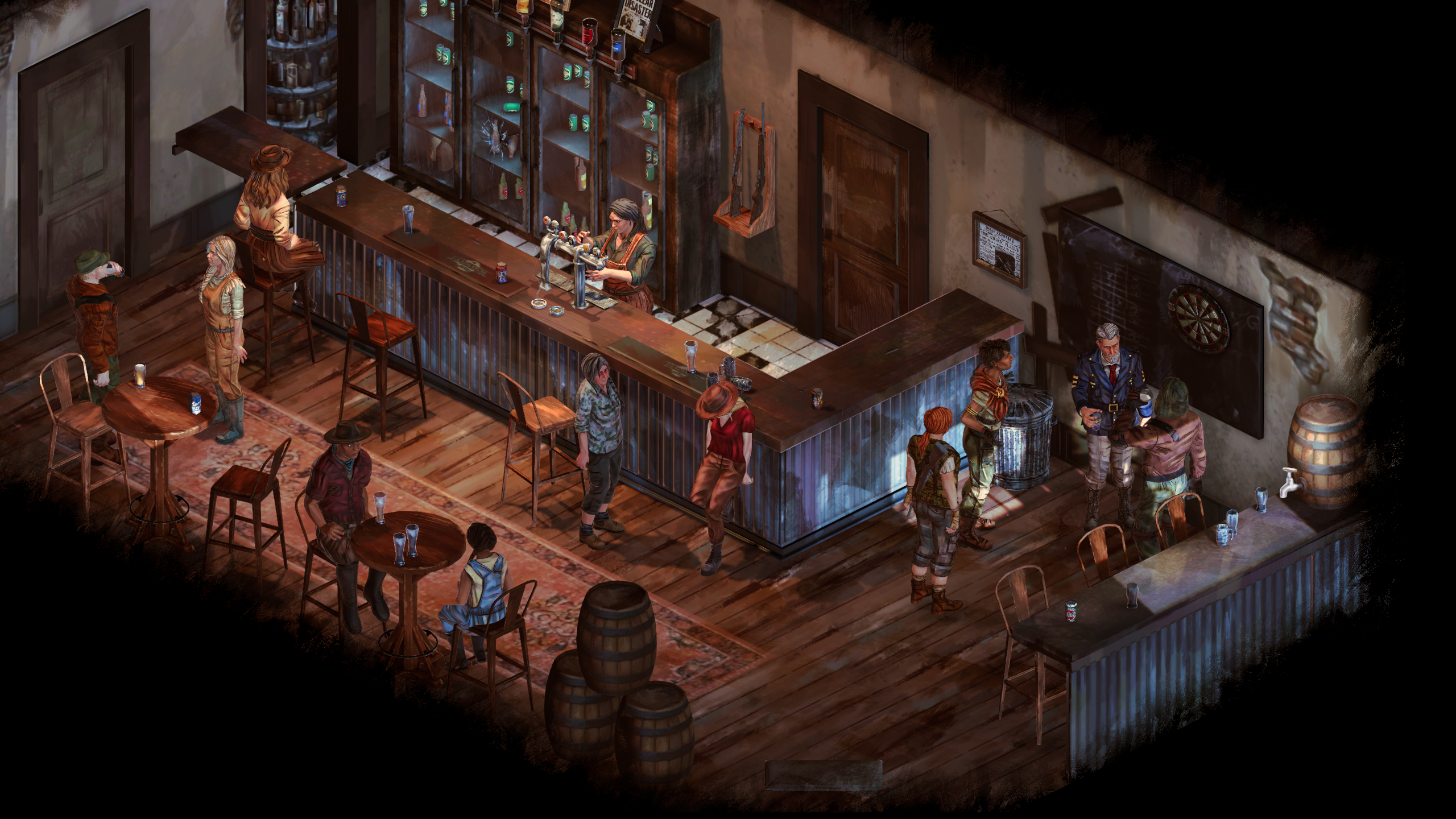
He's not the only veteran on board. "Leanne Taylor Giles, our narrative director, recently joined us from Ubisoft Montreal," says Ritchie, aforementioned game director and studio founder. "She worked with Colin on Torment: Tides of Numenera, so that relationship already exists. She loves Planescape: Torment—she's got a Planescape tattoo. So we're bringing together fans of the genre, and people who've been doing the genre for decades."
The morality system in this game is not just good versus evil, not just law versus chaos, light versus dark.
Colin McComb, Drop Bear Bytes
I ask McComb what sets Broken Road apart from the other RPGs he's worked on. "One of the big things is that the morality system in this game is not just good versus evil, not just law versus chaos, light versus dark, whatever. What we've got is what's called the Moral Compass." This system maps the actions you take along four philosophical quadrants: utilitarian, machiavellian, nihilist and humanist. "The important thing is we aren't going to judge people based on what they choose."
So a player can go full nihilist, where nothing matters and their only drive is to have a good time. Or full machiavellian, working for the sole benefit of the group that they're with. "That's fine. We'll give them complete reactivity. We're not going to punish them for it, except, you know, logically, people would react to you for being an asshole to them." Conversely, you won't be overly rewarded for being a utilitarian or humanist. While some of the people you meet in the world will be more open to a person with a history of mutually beneficial decision making or a proven desire to help those in need, others simply won't.
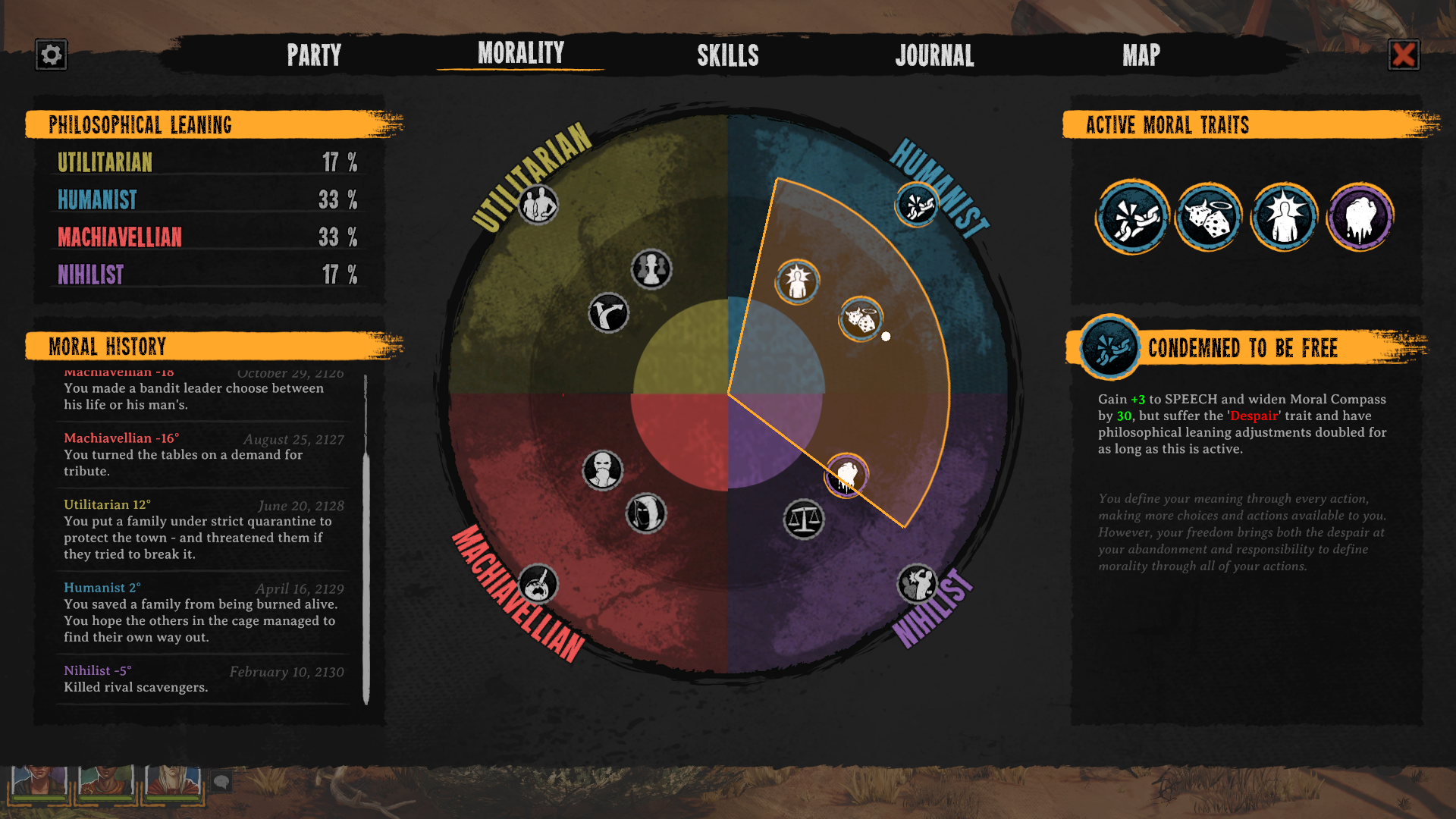
Your actions throughout the game will move your position on the compass, represented as a cone that can rest across multiple quadrants. Depending on your current position, certain conversation options will open up to you. And, as in all great CRPGs, your approach in dialogue will have a major effect on your playthrough.
"We want this to be a game about rationality in order to understand other people's points of view," says McComb, "and to understand you don't need to solve every problem with a bullet. I love Wasteland, I love Fallout, but the solution for almost all of them is violence. With this game, we want to make sure that you can have a pacifist playthrough that will feel rewarding, but that if you choose not to go with the pacifist route, it's going to be just as good."
Keep up to date with the most important stories and the best deals, as picked by the PC Gamer team.
I did not go the pacifist route. I got to play a short hands-on demo as a hired gun—a mercenary who starts the game working with a team of scouts tasked with keeping the local area safe. Origin stories are picked during character creation—which also asks you a series of morality questions to help you find your place on the compass—and there will be four to choose from in the full game. "You can be a member of the barter crews," says Ritchie, "like the merchants and traders that do barter runs between locations. You can be a surveyor, which is like a cartographer or explorer that finds new settlements or sells information to the barter crews—'Hey, I've found a town that you might sell water to'. Or you can be a Jackaroo, which is basically an Australian cowboy. So farmhand, good with animals, knows how to handle a gun, can tinker and repair. So we've got a lot of RPG archetypes—this person is actually a ranger; this person is actually a fighter; this person is actually a cleric."
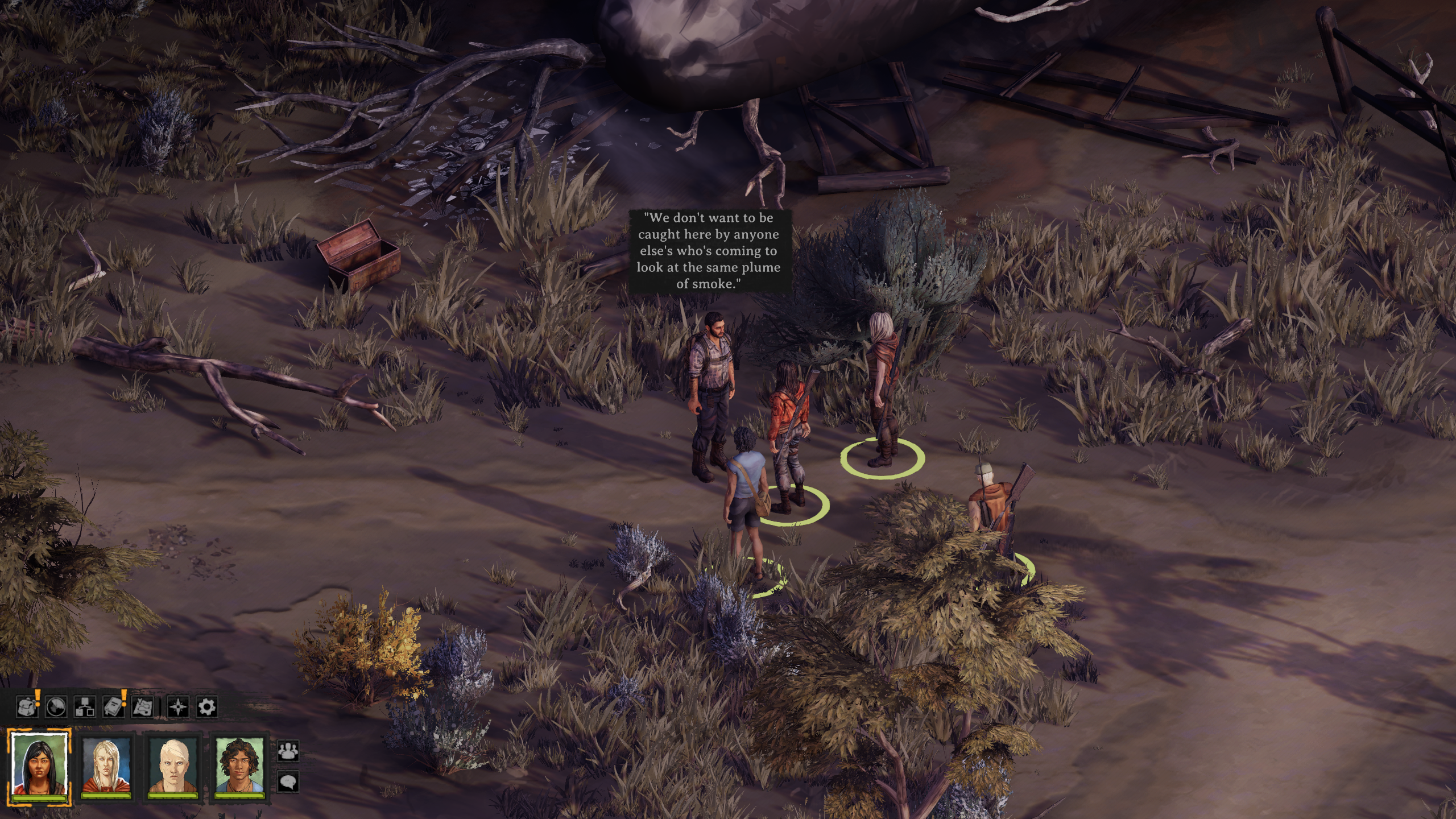
All of the origin stories will eventually converge—all players will face the same catastrophic inciting incident that kicks off the main adventure. But for now, I'm simply a mercenary arriving at the Kokeby Waystation trading hub. There I meet Tina, the teenager who runs the trading post. She asks me to get rid of the previous mercenary she hired, who's become more of a hindrance than a help.
I walk over, feeling confident in my diplomatic skills. But, sure enough, the merc is an arsehole. I could pay him off—an easy bribe to persuade him to be on his way. But I'm just not inclined to make his life any easier. The conversation turns antagonistic, and eventually guns are drawn.
The fight is quick enough that I don't get to experience much of the turn-based combat system. I'm backed up by two scouts, so even though the merc gets some shots off, he's quickly gunned down before any real strategy comes into play. But I do experience some of the reactivity of the story, as later in a bar one of Tina's associates chews me out for my rash use of violence. There's no omniscient karma system judging my style of conflict resolution, but this one guy now thinks I'm incompetent. Maybe somewhere down the road that will prove important. But also, maybe not.
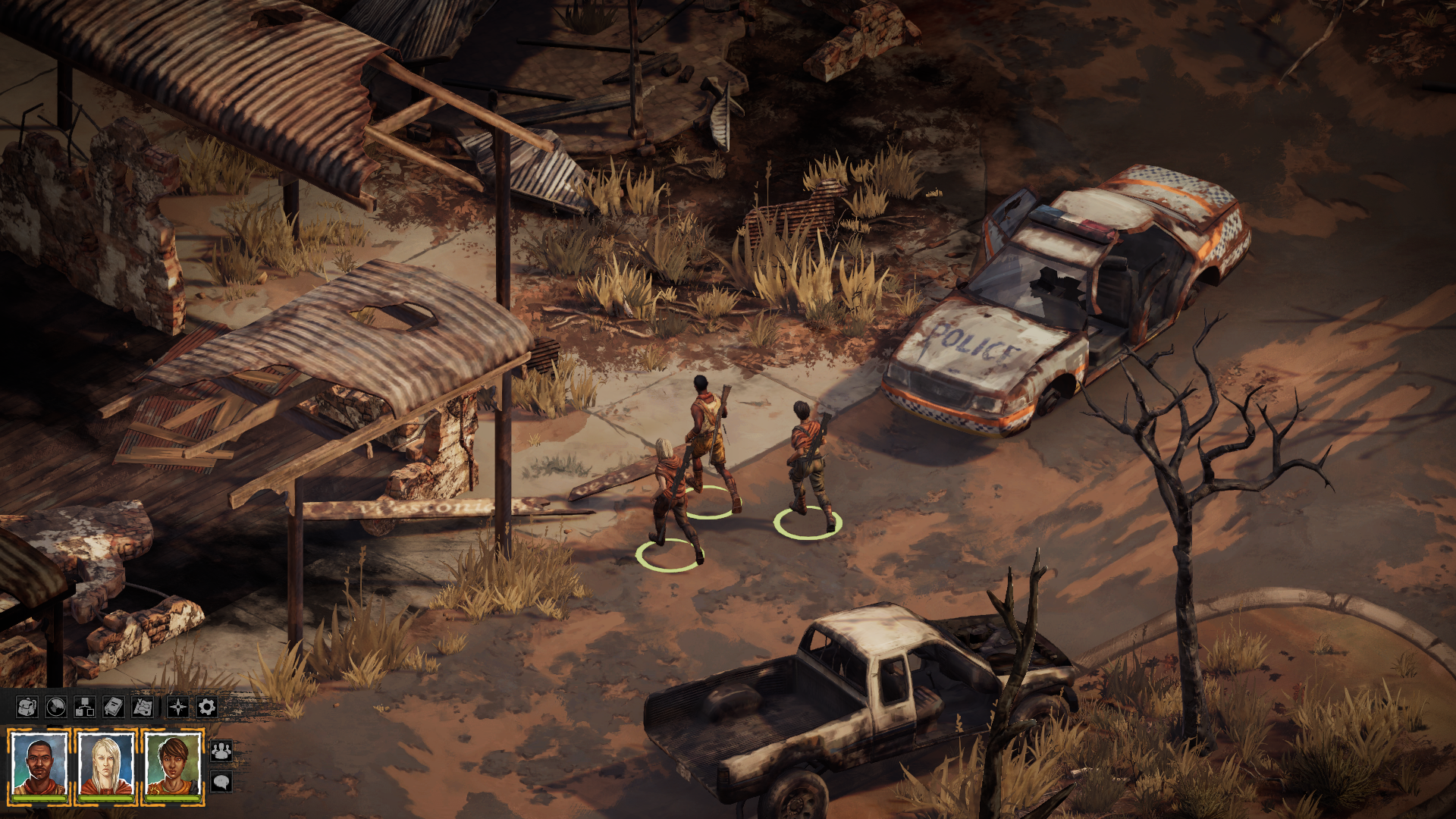
Kokeby itself has a sprinkling of post-apocalyptic flavour—it's a little run-down and ramshackle, but otherwise nothing too extreme. "The game very intentionally takes you on a journey from the normal into the very, very weird," explains Ritchie. "So the beginning of the game very intentionally looks like it could just be a farming community in Western Australia." These are towns and trading posts where survivors were able to scavenge from stores of the pre-apocalypse world, and that defines their look and feel.
"As you start to venture out, it gets more and more and more crazy and wacky."
Craig Ritchie, Drop Bear Bytes
"If you look at just the early game," says Ritchie, "it's kind of normal—where's the post-apocalypse? But as you start to venture out, it gets more and more and more crazy and wacky. That was a big part of it, so you feel very familiar. And then, within the first hour of the game, you're thrown out into this scary, harsh world and you've got to find a new place to be. That's all reflected through the town design, the clothing design and character design."
But as weird as it might get, the team also wants it to feel authentically Australian—both in the kind of problems of the world, and the wry, dark humour that can emerge out of it. Initially the studio wanted to set the game across the entirety of the country, but soon realised that, to pull it off, individual locations would be too shallow to really matter to the player. "We decided that instead we focus on Western Australia, and go deep," says McComb. That means each town will not only have its own distinct look and sound, but also its own narrative vibe—much of it satirical. "We represent different forms of government, which allows for different kinds of moral quandaries to be explored," says Ritchie, "as well as what's reflected in the clothing, reflected in the art, reflected in the feel of the town—everything's meant to have an essence that you can take away."
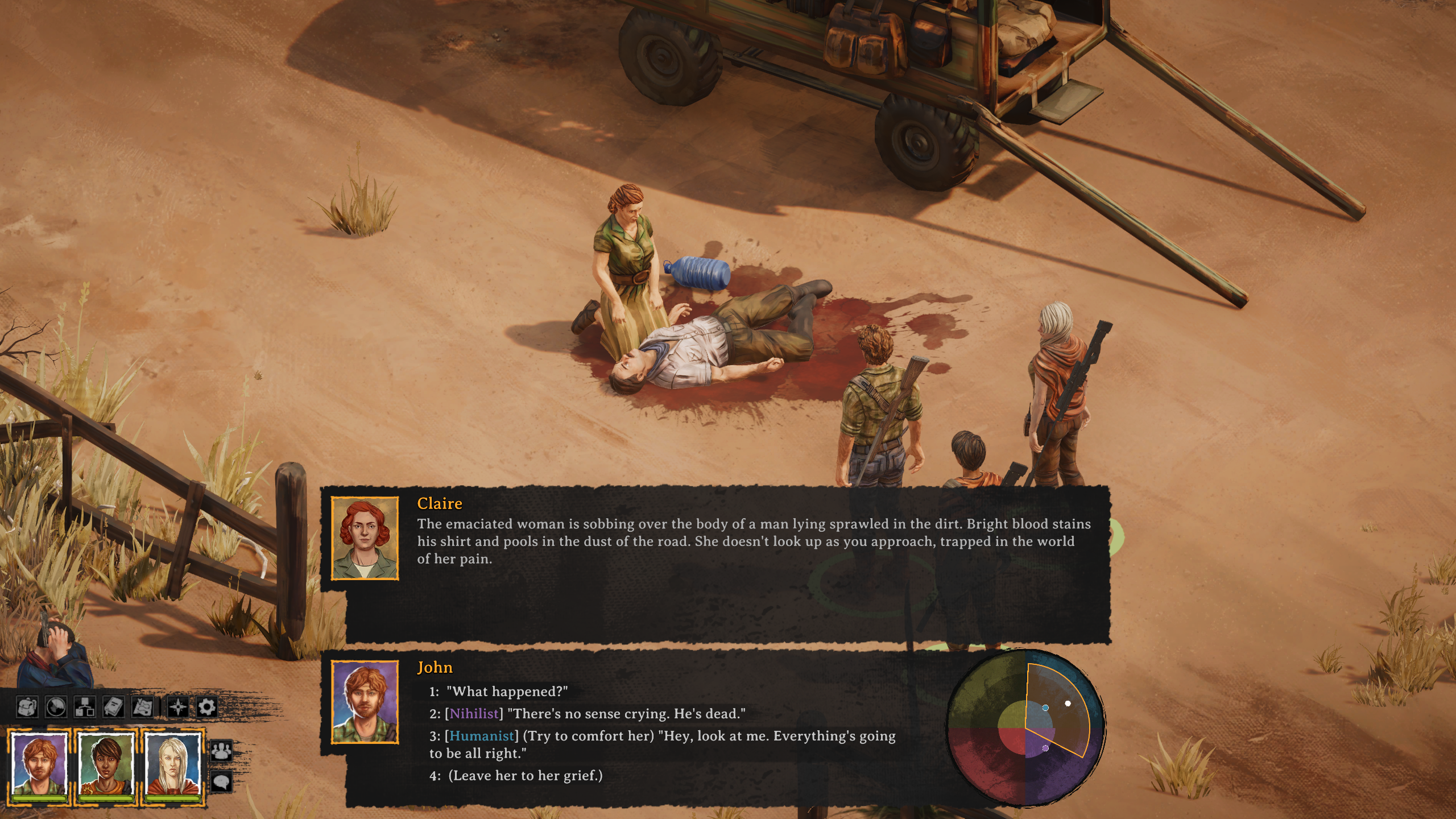
There's a serious edge to that authenticity, too. "From the very start of the project," says McComb, "before we even wrote a word, Craig made sure he had representatives of indigenous cultures speaking up and saying, 'Yeah, you can do that' or 'We'd really appreciate it if you didn't'."
In terms of the music, too, audio lead Timothy Sunderland wanted to represent his country at the point depicted in the game. A woodworker, he built makeshift instruments to capture the feel of people forced to improvise off the land. "The way you feel when you play them really puts you into the mindset of someone that's not quite got the best instrument and has to make do with what they've got," says Sunderland.
"I've tried to put as much atmosphere into it as possible. From where I'm from, a local elder recorded some didge tracks a few years ago, and he gave me permission to use them and just get them out into the world—because he just wanted to share his culture. And he's very proud about his playing which is incredible. So I layer a lot of didgeridoo in behind the scenes. And when you put a lot of reverb and delay on something like that, the atmosphere just just really opens up. It's been really fun to look at the different towns and speak to the narrative of what's going on in this town—what feel should it have—and find the right stuff for it."
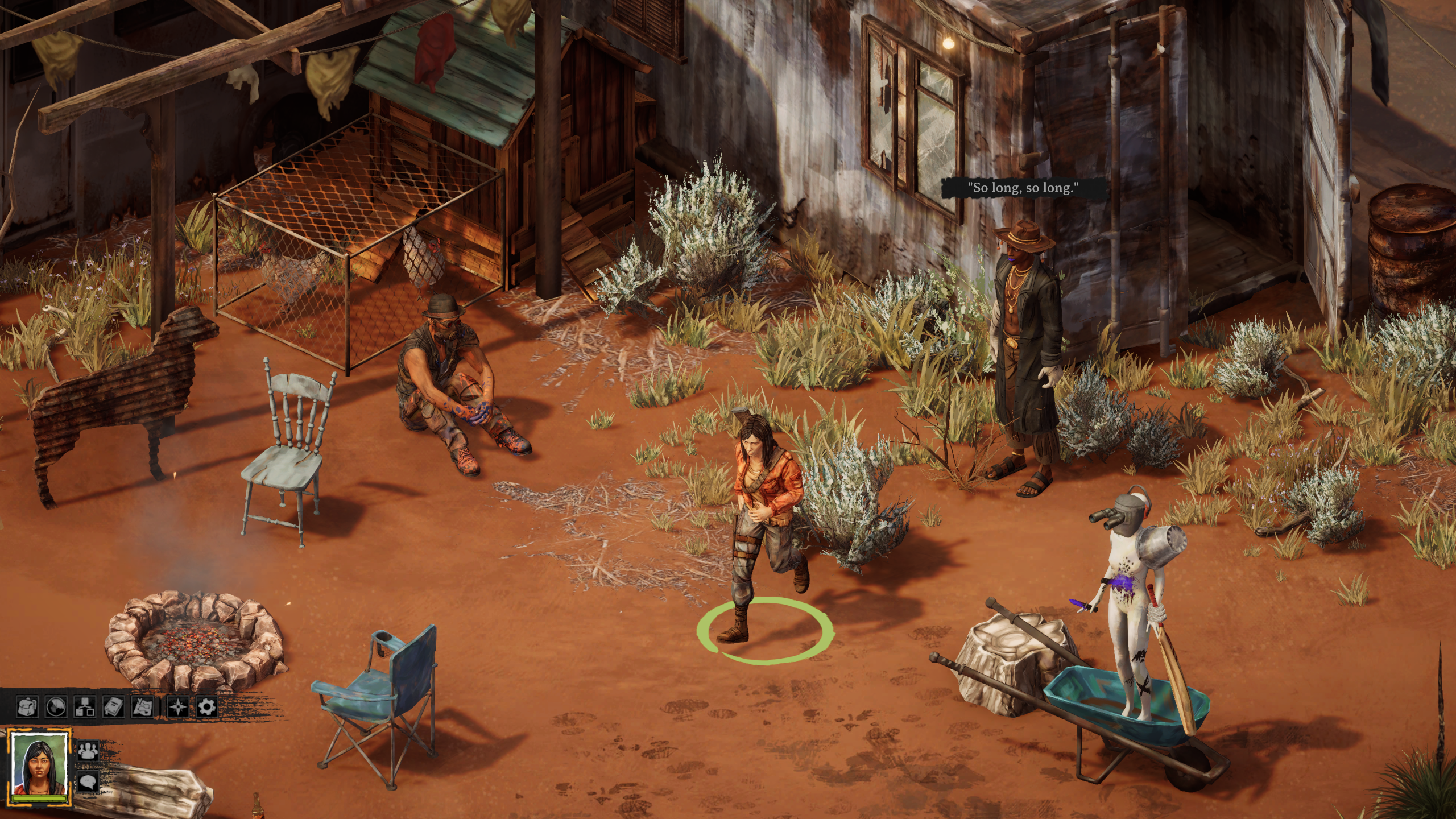
The concept of post-apocalyptic Australia feels very different now—in the midst of the climate crisis—than it did back in the days of Mad Max. "We feel it a lot," says Sunderland. "Almost on a monthly basis, something is going on where—it's right in front of us, you know? Here's the proof."
"You just had floods…" says McComb.
"Exactly," continues Sunderland, "we go from one extreme to the other. We have bushfires that ravage an eighth of the country, and then we have floods that ravage a quarter of the country."
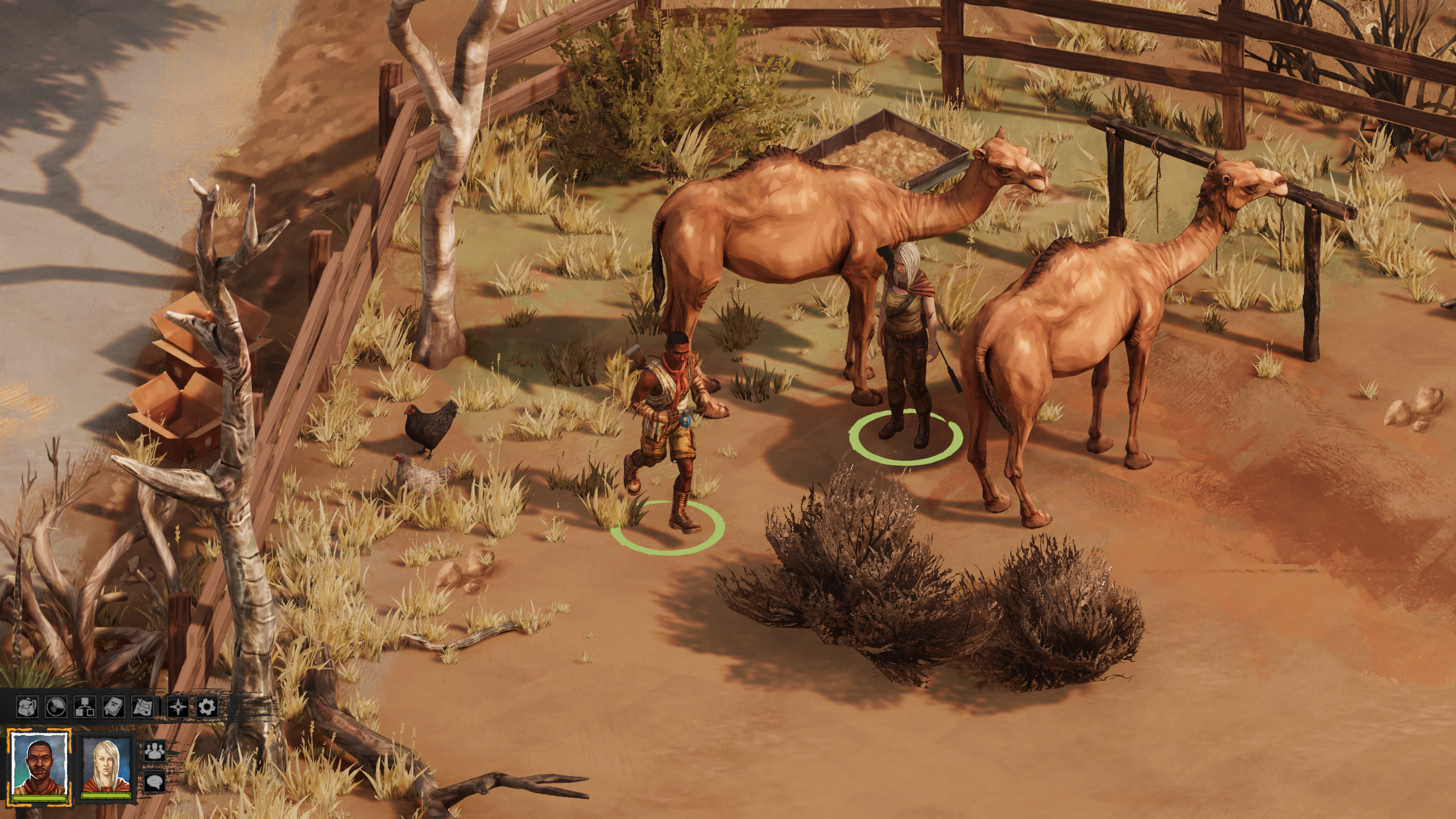
But while environmental disaster is a theme in the game, for Ritchie it's one part of a broader message. "The design was, let's imagine you've got a decision tree for the next 10-to-20 years, and at every single point humans made the worst possible decision, whether it's climate change, political division and extremism, environmental collapse, and another financial crisis—just really being as shitty as you can … we're not we're not trying to make some massive big statement, but looking at all the mistakes that people seem to be making these days."
Inevitably, as a more philosophical CRPG, Broken Roads invites comparison to Disco Elysium, one of the best games of the decade so far. I only got to play a tiny portion of the game—nowhere near enough to tell if it can match such a high bar, or even come close. What I can tell you is that, of everything I saw at Gamescom this year, Broken Roads feels like it has the most potential. If the team can fully realise their absurdly ambitious plans, they've got the chance to make something really special. I hope that they can pull it off.

Phil has been writing for PC Gamer for nearly a decade, starting out as a freelance writer covering everything from free games to MMOs. He eventually joined full-time as a news writer, before moving to the magazine to review immersive sims, RPGs and Hitman games. Now he leads PC Gamer's UK team, but still sometimes finds the time to write about his ongoing obsessions with Destiny 2, GTA Online and Apex Legends. When he's not levelling up battle passes, he's checking out the latest tactics game or dipping back into Guild Wars 2. He's largely responsible for the whole Tub Geralt thing, but still isn't sorry.

